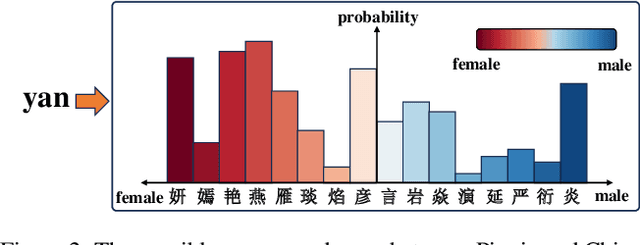For the Misgendered Chinese in Gender Bias Research: Multi-Task Learning with Knowledge Distillation for Pinyin Name-Gender Prediction
Paper and Code
May 10, 2024



Achieving gender equality is a pivotal factor in realizing the UN's Global Goals for Sustainable Development. Gender bias studies work towards this and rely on name-based gender inference tools to assign individual gender labels when gender information is unavailable. However, these tools often inaccurately predict gender for Chinese Pinyin names, leading to potential bias in such studies. With the growing participation of Chinese in international activities, this situation is becoming more severe. Specifically, current tools focus on pronunciation (Pinyin) information, neglecting the fact that the latent connections between Pinyin and Chinese characters (Hanzi) behind convey critical information. As a first effort, we formulate the Pinyin name-gender guessing problem and design a Multi-Task Learning Network assisted by Knowledge Distillation that enables the Pinyin embeddings in the model to possess semantic features of Chinese characters and to learn gender information from Chinese character names. Our open-sourced method surpasses commercial name-gender guessing tools by 9.70\% to 20.08\% relatively, and also outperforms the state-of-the-art algorithms.
 Add to Chrome
Add to Chrome Add to Firefox
Add to Firefox Add to Edge
Add to Edge